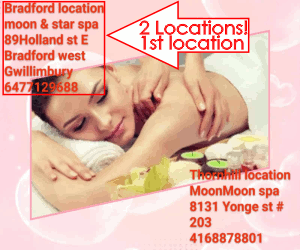Selling yourself and pre-booking
For new clients, we offer $10 off their next appointment if they schedule it before they leave, provided it is within 30 days. If they can't make that appointment immediately, we give them $5 off if they rebook and come back within 30 days. It seems to work well for us.
We don't offer any other rebooking discounts. Our experience shows that clients come to expect those discounts EVERY time they rebook, so you either keep giving them deals or lose their business. That's a lose-lose deal unless you never really planned to receive you full, regular rate for the services you provide.

t017
Instead of discounting, we have been focusing on improving the quality of the client experience. Some MTs have this nailed down and are constantly rebooked with raving fans. Others are less frequently requested and therefore have less consistent incomes. The most heavily requested MTs also (usually) get the best tips.
Being highly skilled at massage therapy is simply not enough. You must also develop a rapport with your clients so that they (more-or-less) like you and strongly trust you. This means developing a broad range of people skills and some good, consistent service-oriented habits. Kelly and I have did a workshop on this stuff for our employees last fall, and since then our monthly request rates (and rebooks) have been climbing.
A few simple habits that work for me:
- Always be in professionally appropriate attire while at work, well-groomed and very clean without noticeable scents.
Keep non-professional conversations and activities in the break room or laundry room, where clients won't see or hear them. Be mindful of volume when talking in the break room, which is near the rest rooms.
Be proactively friendly and welcoming to clients, even if they are coming to see another MT.
Read each client's chart info prior to each appointment and have some idea of what questions I may wish to ask during the intake.
During the intake, always do a few basic things: confirm the scheduled duration of the session, learn why the client came for this session, assess and discuss their situation and what we'll do during the session, and set boundaries and expectations regarding behavior, pressure, communication, draping, etc.
If it's the first time I'm seeing a client, I do a more thorough intake and assessment. If I've seen them before, I adjust the thoroughness appropriately depending on the situation.
Do the best darn work I can.
Afterward, discuss the session and reassess the client, set expectations for the next 1-2 days, educate the client about their body and what they should do from here - come again (when/how often), see someone else (refer appropriately), stretch/exercise (sometimes referring to PT or trainer), etc.
Anyone can do these things if they bother to learn how and practice until it all comes naturally. Many of my skills were honed in prior careers, scholastic experiences, and extracurricular fun activities - particularly those that forced me to go outside my comfort zone in order to succeed. For example, learning to do cold calls (both on the phone and in person) was a VERY unpleasant experience for me (on several occasion), but I learned a LOT about quickly drawing a stranger into discussion and connecting with them on a more fundamental level, and I learned how to take rejection as a professional, which has been invaluable in many ways.






















































































 t017
t017 




